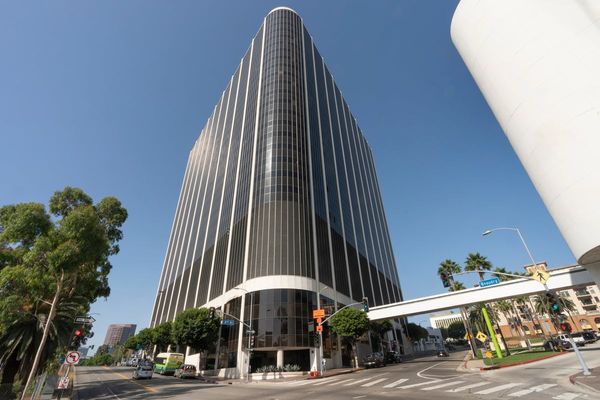
A parliamentary committee has called on the Housing and Planning Secretary to block China’s controversial plans for a new “super embassy” in London, warning it would undermine the UK’s security and economic resilience.
The proposed development at Royal Mint Court in east London has drawn sharp criticism from local residents, human rights groups, and officials over concerns about national security and transparency.
Both the Metropolitan Police and Tower Hamlets Council have raised objections, while the project's scale and secrecy have fuelled wider fears of foreign interference and diplomatic overreach.
China’s application was initially rejected by Tower Hamlets Council, before then-Secretary of State Angela Rayner took over the decision-making process last year. A final ruling was expected on September 9, but responsibility has now passed to Housing Secretary Steve Reed.
Mr Reed is expected to make a decision later this month.
The Joint Committee on the National Security Strategy (JCNSS) has now written to Mr Reed, stating in a letter that approving the embassy plan would be “not in the UK’s long-term interest.”
Mr Reed has said that any “threats to national security” will be a key consideration in whether the controversial plans are given the green light.

Committee chairman Matt Western MP wrote to Mr Reed saying that the proposed location presents "eavesdropping risks in peacetime and sabotage risks in a crisis" due to its proximity to fibre-optic cables, data centres and telecoms exchanges serving Canary Wharf and the City.
He also noted reports of plans for basement rooms and tunnels and that the security services have warned that allowing Beijing to set up the biggest embassy in Europe would create a hub for the country to expand its "intelligence gathering and intimidation operations".
The looming decision on the embassy comes as the Government faced continued pressure over its handling of the collapsed Chinese spying case.
Mr Western said the case is a recent reminder of the scale of China's alleged illicit activities.
"We urge you to acknowledge that approving this decision is not in the UK's long-term interest, and the consequences of having such a site will be very difficult to handle if relations with Beijing worsen in future.
"We therefore urge the Government to keep long-term national security at the forefront of its decision-making, and this must be demonstrated in your response to the embassy planning application.
"The UK's security and economic resilience will be negatively affected if the plans are allowed to proceed as currently proposed."
Plans for the embassy were initially rejected by Tower Hamlets Council in 2022, and China chose not to appeal the decision.
However, Beijing resubmitted the application two weeks after Sir Keir Starmer’s general election victory last year, reportedly in the belief that a Labour government might take a more favourable view. The application was then called in, meaning ministers would now make the final decision.
China bought the old Royal Mint Court site for £255m in 2018.
The 20,000 square metre complex would be the biggest embassy in Europe if it goes ahead and includes plans for offices, a large basement area, housing for 200 staff, and a new tunnel to connect the Embassy House to a separate building in the grounds.







